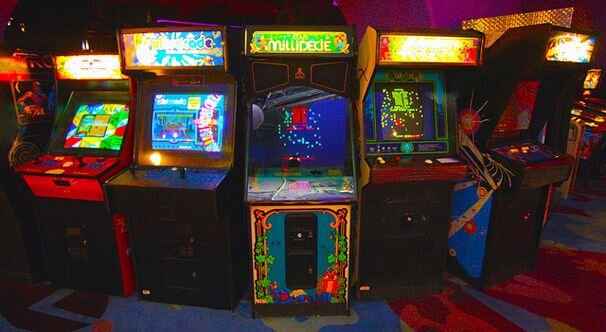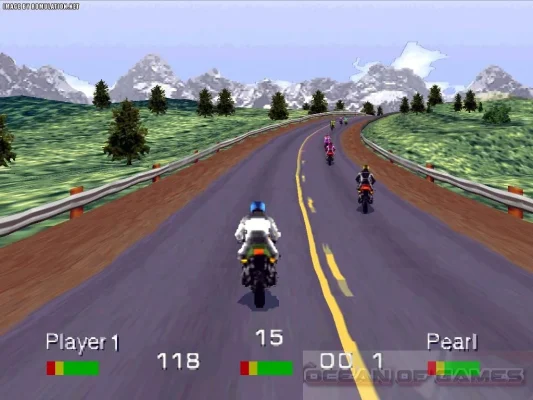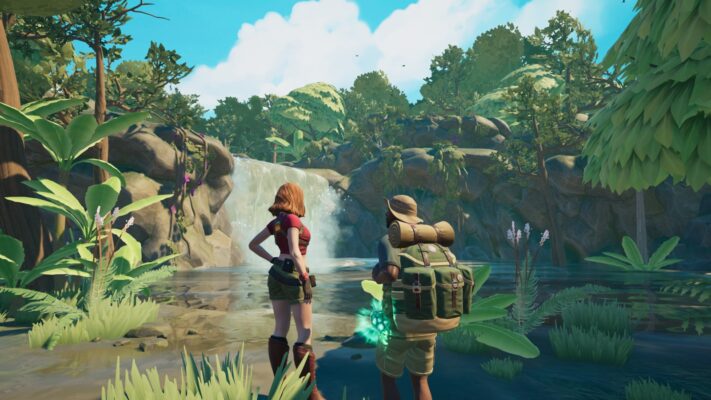What comes to your mind when I say gaming? If you ask me, I picture a massive screen coupled with a powerful PC (Yes, a PC) preferably housing an RTX 4090 for the utmost immersion and indulgence while I spend my hours away playing games. I understand there is a big chunk of console purists who would argue gaming on a PS5 or the latest Xbox provinces a superior experience but to each his own. We live in times where gamers have an array of options to choose from. Be it a console, PC, or handheld compact hybrid console, there is freedom of choice like no other in the current scenario. However, this was not always the case.
Gaming has come a long way since its humble beginnings, evolving from simple pixelated adventures to immersive virtual realities. Over the years, advancements in technology have transformed gaming into an extraordinary form of entertainment that captivates millions around the world. Today we’re embarking on a fascinating journey through the evolution of gaming, exploring the milestones, innovations, and unforgettable experiences that have shaped the industry into what it is today.
The Birth of an Industry

The origins of gaming can be traced back to the early days of arcades and home consoles. Pong, the iconic table tennis simulation, burst onto the scene in 1972 and became the first commercially successful video game. This simple yet addictive game paved the way for the rise of arcade machines and home gaming systems.
In the late 1970s and early 1980s, consoles like the Atari 2600 and the Intellivision introduced a new level of gaming experience to households. Players could now enjoy a variety of games, from the pixelated adventures of Pitfall! to the spaceship battles of Space Invaders. These consoles sparked a gaming revolution, establishing gaming as a mainstream form of entertainment.
The Golden Age of Consoles

The 1980s witnessed the birth of gaming’s most iconic characters and franchises. Super Mario Bros. captured the hearts of millions with its side-scrolling platforming action, while The Legend of Zelda introduced gamers to sprawling fantasy worlds filled with puzzles and quests. These games set the standard for storytelling and gameplay mechanics, laying the foundation for future generations of games. Super Mario Bros. with its loveable characters Mario and Luigi managed to carve a place in people’s hearts decades ago and the IP keeps on generating billions of dollars each year thanks to its prominence in mainstream pop culture.
In the 1990s, the console wars heated up, pitting Sega Genesis against Super Nintendo Entertainment System (SNES). Sonic the Hedgehog raced onto the scene, providing fierce competition to Nintendo’s mascot, Mario. This rivalry ignited a wave of innovation, with each console pushing the limits of technology and introducing groundbreaking games like Street Fighter II and Mortal Kombat.
The Rise of PC Gaming

While consoles dominated the living rooms, personal computers (PCs) became the platform of choice for a different breed of gamers. The PC gaming scene flourished, offering a vast array of genres and experiences. The point-and-click adventures of Monkey Island and the real-time strategy of Warcraft captivated gamers with their intricate narratives and strategic gameplay.
The introduction of CD-ROM technology in the mid-1990s further revolutionized PC gaming. CD-ROMs allowed for more expansive worlds, enhanced graphics, and immersive soundtracks. Games like Myst, with its atmospheric puzzles, and Diablo, with its dark fantasy setting, pushed the boundaries of what was possible in gaming.
The Era of 3D and Beyond

The late 1990s witnessed a significant leap forward with the advent of three-dimensional (3D) graphics. Super Mario 64 and The Legend of Zelda: Ocarina of Time on the Nintendo 64 showcased the immersive potential of 3D environments, allowing players to explore vast, interactive worlds like never before.
As technology progressed, so did the gaming industry. The early 2000s saw the rise of online gaming, where players could connect and compete with others around the globe. Massive multiplayer online role-playing games (MMORPGs) like World of Warcraft and EverQuest brought players together in virtual realms, fostering communities and friendships that transcended geographical boundaries.
The 2010s brought a new wave of innovation with the emergence of mobile gaming. Smartphones and tablets provided a platform for gaming on the go, and casual games like Angry Birds and Candy Crush Saga captured the attention of both dedicated gamers and casual players alike. If your mom or dad don’t spend a big chunk of their time trying to solve candy crush puzzles throughout the day then you’re a lucky one as I cannot say that for myself!
Virtual reality (VR) and augmented reality (AR) technologies entered the mainstream, offering immersive experiences that transported players into virtual worlds or blended the real and digital realms. Games like Pokémon Go brought the magic of augmented reality into the everyday lives of millions, allowing players to capture virtual creatures in real-world locations. The Pokémon Go era genuinely allowed people to understand the immersion AR allows in gaming as teenagers were seen running around in herds trying to catch a Pikachu on the streets.
It is no secret that gaming has evolved from simple pixelated adventures to immersive, multi-dimensional experiences that engage players on an emotional and interactive level. Technological advancements, fierce competition, and the creative minds of game developers have pushed the boundaries of what is possible in the world of gaming.
As we look to the future, it’s clear that gaming will continue to evolve and surprise us with new innovations. From virtual reality to artificial intelligence, the possibilities are endless. So, grab your controller, don your virtual reality headset, and get ready for the next chapter in the ever-evolving world of gaming. The adventure awaits! Before you hop on your favourite video games: Here are some of my top picks which I’ve enjoyed thoroughly over the years –
- Marvel’s Spider-Man
- Detroit: Become Human
- Red Dead Redemption 2
- GTA 5
- The Last of Us



1 Comment
Heya i’m for the first time here. I found this board and I to find It truly useful & it helped me out a lot. I’m hoping to present one thing again and help others like you helped me.